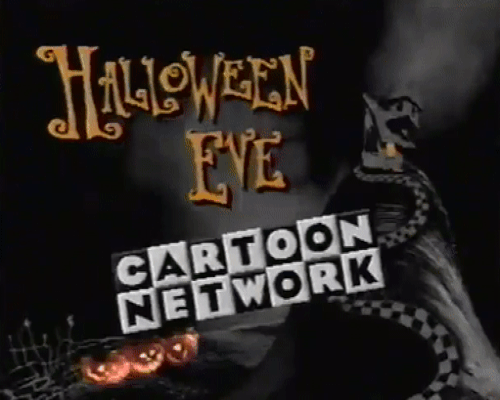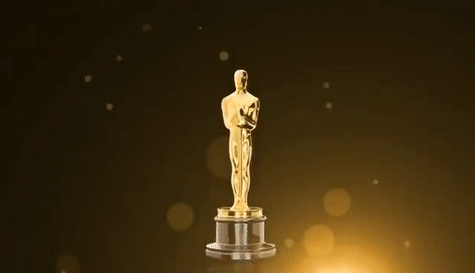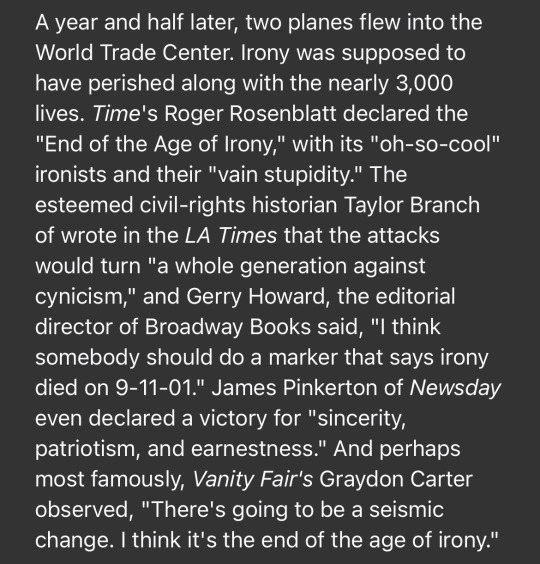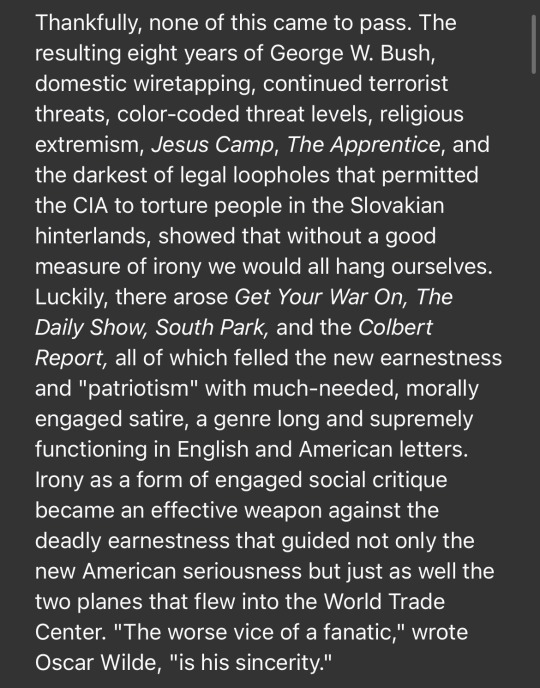#Roger Rosenblatt
Text
New Year’s resolutions are penny-ante prayers.
New Year’s resolutions are penny-ante prayers. You are this way, but you hope to be that way. You used to want this, but now you want that. The assumption behind resolutions is that something must be corrected and improved. One vows to be better than one was the year before.
Part of the nature of resolutions, particularly for those of us north of 60, has to do not only with the new year before us, but also with time already spent, or misspent. We reflect on the years we’ve lived, on the past resolutions made and broken. Another New Year’s Eve come and gone. Every time the ball drops, the heart sinks. You are running out of time, and time is what we value most. […]
Thus there is always a melancholic desperation and urgency when we shout, “Happy New Year!” Will this new year, in fact, be any better than the last? We resolve that it will. We resolve to be fitter, healthier, cleverer, richer, more successful, more popular, more productive, better dressed, happier. And so restarts the whole vain, foolish, inevitably disappointing cycle.
The trouble with all such self-oriented promises is that they deal in chicken feed. What does the great wide world care if you lose weight, or work out, or work harder, or quit drinking or smoking? Quit smoking or smoke three packs a day. Work out daily or let yourself go. It’s your choice, your life. Your little life. Meanwhile, the world — the whole tortured, self-destructive, polarized, endangered, extraordinary world — spins on. […]
If you’re looking for a worthwhile resolution…we can start small.
Personally, I vow that I will frequently visit a children’s hospital and try to distract kids with stories, the funnier the better. I vow that I will phone every lonely person I know — and there are plenty — at least twice a week, just to chat and make them feel part of the living world. I vow to give alms to everyone who asks, and to those who don’t, and to stand up for the stupid and crazy, the stupider and crazier, the better. I promise to keep an eye out for strays (cats, dogs and people) and bring them safety and comfort. I vow to see every wrong as a menace, every wound an opportunity.
What will you do — right now, this week, this month — to make a better world? Stage a protest. Send a letter to right a wrong, or to proffer friendship. (A thoughtful, sympathetic letter to a friend in sorrow or distress is a powerful thing.) Lend a hand. Offer a word of comfort or inspiration or support or love. Donate money or, most valuable of all, time. There are so many ways to move this world, right within reach.
The great beautiful irony of all this, of course, is that selflessness is not the opposite of self-improvement. Selflessness is self-improvement — the most meaningful and lasting kind.
Practice it, and you may just find that the new year is, in fact, a step up from the last. You may find that, all at once, you look and feel better than you would have after any amount of dieting or exercise. Unburdened of ego. Lighter on your feet. Say, haven’t you lost weight?
Practice it, and suddenly you will find that your little life has gotten big. Big life, grand life is like art. It is not done well unless the artist dreams expansively, ridiculously, by making a glorious Whitman-size fool of herself in seeking to enhance everything, cure every ill. Nothing less.
— Roger Rosenblatt, from “This Year, Make a Resolution About Something Bigger Than Yourself” (NY Times, December 26, 2023)
#Roger Rosenblatt#new year#new year's resolutions#resolutions#charity#volunteer#forgive#help#2024#exercise#diet#health
14 notes
·
View notes
Text
On Resolutions
I am “borrowing” this post from DK’s Live & Learn blog. I’ve been following his blog for well over a decade, long before he made Kurt’s list of the 25 Blogs Guaranteed To Make You Smarter.
His place on the list is well-deserved and a daily read for me.
When I first read the pull quote below, I immediately connected with the idea and maybe you will too.
Part of the nature of resolutions,…

View On WordPress
1 note
·
View note
Text



pt. 3 of my continuing Firebreather doodles ft. the supporting cast
#firebreather#duncan rosenblatt#margaret rosenblatt#belloc#isabel vasques#kenny rogers#jenna schartzendruber#dre#i dont think we ever got a full name for him alas#colonel barnes#continuing to make my so so niche content#but man he is just. a little guy. to me#zsketches
14 notes
·
View notes
Text
Duncan, post kaiju-fication: *ranting about his dad’s high expectations in kenny’s trailer*
Kenny: dads, totally. Hey,
how’d you find me anyway?
Duncan: hm? oh, i uh smelled you across the dessert
Kenny:
Kenny: you what-
#firebreather#he’s actually super chill about it tho#cuz duncan literally showed up at his house#shirtless#and so so inhuman#and kenny didnt even bat an eye#so what’s a little superhuman smelling among friends?#duncan rosenblatt#kenny rogers#kaiju
17 notes
·
View notes
Text
Yandere Cartoon Network MasterList

Main Masterlist

NONE YET

NONE YET

Wilt

Wyatt Williams
Duncan Rosenblatt
Duncan
Mystique Sonia
Mordecai
Grizz (Human)
Zane
Kai

Marceline & Bubblegum

Accidentally hurting their darling - Lance Lunis, Ilana Lunis, Newton
Wilt with a darling that has a sprained ankle
Platonic Yandere: Grim, Billy and Mandy with a best friend that is being bullied

Character headcanons: Lin Chung
Platonic Yandere: Frankie with a younger sibling who also helps around the foster house
Character headcanons: Mighty Ray
Character headcanons: Mystique Sonia
Most delusional to least delusional - Ninjago: Masters of Spinjitzu
Character headcanons: (Human) Ice Bear
Would they be friends first or get straight to the point - Ninjago: Masters of Spinjitzu
Platonic vs Romantic: Grim
Platonic Yandere: Norville "Shaggy" Rogers with a younger sibling who loves everything horror
Most delusional to least delusional - Scooby-Doo! Mystery Incorporated

NONE YET

NONE YET

Yandere Team-ups: Heather & Courtney & Gwen
#yandere#yandere masterlist#masterlist#fhfif#yandere fhfif#firebreather#yandere firebreather#total drama#yandere total drama#hero 108#yandere hero 108#sym bionic titan#yandere sym bionic titan
29 notes
·
View notes
Text

2023 Oscar nominations :
Best Picture
“All Quiet on the Western Front,” Malte Grunert, Producer
“Avatar: The Way of Water,” James Cameron and Jon Landau, Producers
“The Banshees of Inisherin,” Graham Broadbent, Pete Czernin and Martin McDonagh, Producers
“Elvis,” Baz Luhrmann, Catherine Martin, Gail Berman, Patrick McCormick and Schuyler Weiss, Producers
“Everything Everywhere All at Once,” Daniel Kwan, Daniel Scheinert and Jonathan Wang, Producers
“The Fabelmans,” Kristie Macosko Krieger, Steven Spielberg and Tony Kushner, Producers
“Tár,” Todd Field, Alexandra Milchan and Scott Lambert, Producers
“Top Gun: Maverick,” Tom Cruise, Christopher McQuarrie, David Ellison and Jerry Bruckheimer, Producers
“Triangle of Sadness,” Erik Hemmendorff and Philippe Bober, Producers
“Women Talking,” Dede Gardner, Jeremy Kleiner and Frances McDormand, Producers
Best Director
Martin McDonagh (“The Banshees of Inisherin”)
Daniel Kwan, Daniel Scheinert (“Everything Everywhere All at Once”)
Steven Spielberg (“The Fabelmans”)
Todd Field (“Tár”)
Ruben Östlund (“Triangle of Sadness”)
Best Lead Actor
Austin Butler (“Elvis”)
Colin Farrell (“The Banshees of Inisherin”)
Brendan Fraser (“The Whale”)
Paul Mescal (“Aftersun”)
Bill Nighy (“Living”)
Best Lead Actress
Cate Blanchett (“Tár”)
Ana de Armas (“Blonde”)
Andrea Riseborough (“To Leslie”)
Michelle Williams (“The Fabelmans”)
Michelle Yeoh (“Everything Everywhere All at Once”)
Best Supporting Actor
Brendan Gleeson (“The Banshees of Inisherin”)
Brian Tyree Henry (“Causeway”)
Judd Hirsch (“The Fabelmans”)
Barry Keoghan (“The Banshees of Inisherin”)
Ke Huy Quan (“Everything Everywhere All at Once”)
Best Supporting Actress
Angela Bassett (“Black Panther: Wakanda Forever”)
Hong Chau (“The Whale”)
Kerry Condon (“The Banshees of Inisherin”)
Jamie Lee Curtis (“Everything Everywhere All at Once”)
Stephanie Hsu (“Everything Everywhere All at Once”)
Best Adapted Screenplay
“All Quiet on the Western Front,” Screenplay by Edward Berger, Lesley Paterson & Ian Stokell
“Glass Onion: A Knives Out Mystery,” Written by Rian Johnson
“Living,” Written by Kazuo Ishiguro
“Top Gun: Maverick,” Screenplay by Ehren Kruger and Eric Warren Singer and Christopher McQuarrie; Story by Peter Craig and Justin Marks
“Women Talking,” Screenplay by Sarah Polley
Best Original Screenplay
“The Banshees of Inisherin,” Written by Martin McDonagh
“Everything Everywhere All at Once,” Written by Daniel Kwan & Daniel Scheinert
“The Fabelmans,” Written by Steven Spielberg & Tony Kushner
“Tár,” Written by Todd Field
“Triangle of Sadness,” Written by Ruben Östlund
All Quiet on the Western Front”, James Friend
“Bardo, False Chronicle of a Handful of Truths,” Darius Khondji
“Elvis,” Mandy Walker
“Empire of Light,” Roger Deakins
“Tár,” Florian Hoffmeister
Best Documentary Feature Film
“All That Breathes,” Shaunak Sen, Aman Mann and Teddy Leifer
“All the Beauty and the Bloodshed,” Laura Poitras, Howard Gertler, John Lyons, Nan Goldin and Yoni Golijov
“Fire of Love,” Sara Dosa, Shane Boris and Ina Fichman
“A House Made of Splinters,” Simon Lereng Wilmont and Monica Hellström
“Navalny,” Daniel Roher, Odessa Rae, Diane Becker, Melanie Miller and Shane Boris
Best Documentary Short Film
“The Elephant Whisperers,” Kartiki Gonsalves and Guneet Monga
“Haulout,” Evgenia Arbugaeva and Maxim Arbugaev
“How Do You Measure a Year?” Jay Rosenblatt
“The Martha Mitchell Effect,” Anne Alvergue and Beth Levison
“Stranger at the Gate,” Joshua Seftel and Conall Jones
Best Film Editing
“The Banshees of Inisherin,” Mikkel E.G. Nielsen
“Elvis,” Matt Villa and Jonathan Redmond
“Everything Everywhere All at Once,” Paul Rogers
“Tár,” Monika Willi
“Top Gun: Maverick,” Eddie Hamilton
Best International Feature Film
“All Quiet on the Western Front” (Germany)
“Argentina, 1985” (Argentina)
“Close” (Belgium)
“EO” (Poland)
“The Quiet Girl” (Ireland)
Best Original Song
“Applause” from “Tell It Like a Woman,” Music and Lyric by Diane Warren
“Hold My Hand” from “Top Gun: Maverick,” Music and Lyric by Lady Gaga and BloodPop
“Lift Me Up” from “Black Panther: Wakanda Forever,” Music by Tems, Rihanna, Ryan Coogler and Ludwig Goransson; Lyric by Tems and Ryan Coogler
“Naatu Naatu” from “RRR,” Music by M.M. Keeravaani; Lyric by Chandrabose
“This Is a Life” from “Everything Everywhere All at Once,” Music by Ryan Lott, David Byrne and Mitski; Lyric by Ryan Lott and David Byrne
Best Production Design
“All Quiet on the Western Front,” Production Design: Christian M. Goldbeck; Set Decoration: Ernestine Hipper
“Avatar: The Way of Water,” Production Design: Dylan Cole and Ben Procter; Set Decoration: Vanessa Cole
“Babylon,” Production Design: Florencia Martin; Set Decoration: Anthony Carlino
“Elvis,” Production Design: Catherine Martin and Karen Murphy; Set Decoration: Bev Dunn
“The Fabelmans,” Production Design: Rick Carter; Set Decoration: Karen O’Hara
Best Visual Effects
“All Quiet on the Western Front,” Frank Petzold, Viktor Müller, Markus Frank and Kamil Jafar
“Avatar: The Way of Water,” Joe Letteri, Richard Baneham, Eric Saindon and Daniel Barrett
“The Batman,” Dan Lemmon, Russell Earl, Anders Langlands and Dominic Tuohy
“Black Panther: Wakanda Forever,” Geoffrey Baumann, Craig Hammack, R. Christopher White and Dan Sudick
“Top Gun: Maverick,” Ryan Tudhope, Seth Hill, Bryan Litson and Scott R. Fisher
Best Animated Feature Film
“Guillermo del Toro’s Pinocchio,” Guillermo del Toro, Mark Gustafson, Gary Ungar and Alex Bulkley
“Marcel the Shell With Shoes On,” Dean Fleischer Camp, Elisabeth Holm, Andrew Goldman, Caroline Kaplan and Paul Mezey
“Puss in Boots: The Last Wish,” Joel Crawford and Mark Swift
“The Sea Beast,” Chris Williams and Jed Schlanger
“Turning Red,” Domee Shi and Lindsey Collins
Best Animated Short Film
“The Boy, the Mole, the Fox and the Horse,” Charlie Mackesy and Matthew Freud
“The Flying Sailor,” Amanda Forbis and Wendy Tilby
“Ice Merchants,” João Gonzalez and Bruno Caetano
“My Year of Dicks,” Sara Gunnarsdóttir and Pamela Ribon
“An Ostrich Told Me the World Is Fake and I Think I Believe It,” Lachlan Pendragon
Best Costume Design
“Babylon,” Mary Zophres
“Black Panther: Wakanda Forever,” Ruth Carter
“Elvis,” Catherine Martin
“Everything Everywhere All at Once,” Shirley Kurata
“Mrs. Harris Goes to Paris,” Jenny Beavan
Best Live Action Short
“An Irish Goodbye,” Tom Berkeley and Ross White
“Ivalu,” Anders Walter and Rebecca Pruzan
“Le Pupille,” Alice Rohrwacher and Alfonso Cuarón
“Night Ride,” Eirik Tveiten and Gaute Lid Larssen
“The Red Suitcase,” Cyrus Neshvad
Best Makeup and Hairstyling
“All Quiet on the Western Front,” Heike Merker and Linda Eisenhamerová
“The Batman,” Naomi Donne, Mike Marino and Mike Fontaine
“Black Panther: Wakanda Forever,” Camille Friend and Joel Harlow
“Elvis,” Mark Coulier, Jason Baird and Aldo Signoretti
The Whale,” Adrien Morot, Judy Chin and Anne Marie Bradley
Best Original Score
“All Quiet on the Western Front,” Volker Bertelmann
“Babylon,” Justin Hurwitz
“The Banshees of Inisherin,” Carter Burwell
“Everything Everywhere All at Once,” Son Lux
“The Fabelmans,” John Williams
Best Sound
“All Quiet on the Western Front,” Viktor Prášil, Frank Kruse, Markus Stemler, Lars Ginzel and Stefan Korte
“Avatar: The Way of Water,” Julian Howarth, Gwendolyn Yates Whittle, Dick Bernstein, Christopher Boyes, Gary Summers and Michael Hedges
“The Batman,” Stuart Wilson, William Files, Douglas Murray and Andy Nelson
“Elvis,” David Lee, Wayne Pashley, Andy Nelson and Michael Keller
“Top Gun: Maverick,” Mark Weingarten, James H. Mather, Al Nelson, Chris Burdon and Mark Taylor
18 notes
·
View notes
Text


A year and a half later, two planes flew into the World Trade Center. Irony was supposed to have perished along with the nearly 3,000 lives. Time’s Roger Rosenblatt declared “The End of the Age of Irony,” with its “oh-so-cool” ironists and their “vain stupidity.” The esteemed civil-rights historian Taylor Branch wrote in the LA Times that the attacks would turn “a whole generation against cynicism,” and Gerry Howard, the editorial director of Broadway Books said, “I think somebody should do a marker that says irony died on 9-11-01.” James Pinkerton of Newsday even declared a victory for “sincerity, patriotism, and earnestness.” And perhaps most famously, Vanity Fair’s Graydon Carter observed, “There’s going to be a seismic change. I think it’s the end of the age of irony.”
Thankfully, none of this came to pass. The resulting eight years of George W. Bush, domestic wiretapping, continued terrorist threats, color-coded threat levels, religious extremism, Jesus Camp, The Apprentice, and the darkest of legal loopholes that permitted the CIA to torture people in the Slovakian hinterlands, showed that without a good measure of irony we would all hang ourselves. Luckily, there arose Get Your War On, The Daily Show, South Park, and the Colbert Report, all of which felled the new earnestness and “patriotism” with much-needed, morally-engaged satire, a genre long and supremely functioning in English and American letters. Irony as a form of engaged social critique became an effective weapon against the deadly earnestness that guided not only the new American seriousness but just as well the two planes that flew into the World Trade Center. “The worse vice of a fanatic,” wrote Oscar Wilde, “is his sincerity.”
—R. Jay Magill Jr., from “We’ve Been Arguing About Irony Vs. Sincerity for Millenia” (The Atlantic, November 2012)
3 notes
·
View notes
Text
0 notes
Text
"We are all storytellers, trying to make sense of our lives, trying to learn who we are, trying to find meaning." - Roger Rosenblatt
0 notes
Text
Antonio Velardo shares: ¿Y si en 2024 prometemos mejorar el mundo? by Roger Rosenblatt
By Roger Rosenblatt
Puede parecer imposible. No lo es.
Published: December 31, 2023 at 12:01AM
from NYT En español https://ift.tt/KNqBbaM
via IFTTT

View On WordPress
0 notes
Text
Ekphrasis Reflection
From D.S. Waldman’s panel, I learned about ekphrasis and how it could be applied to art. Stated at the panel, Waldman believes in art and art making. His works are supported by SDSU, and he presented us with an exercise at the start of the lecture. It was a “seeing and writing meditation,” as Waldman would call it. The painting that Waldman introduces is one curated by Georges Braque, and titled Violin and Candlestick (1910). He asked us to describe what you saw in 3 words. In my notes, I wrote down that the art he is showing us seems shattered, unorganized, broken, and distorted. I thought of the painting as a broken mirror, as it was the first thought that came to my mind when viewing the work. I saw this painting to be an allusion to Cataract Blues by Roger Rosenblatt and Jules Feiffer. In Cataract Blues, the author, Roger Rosenblatt, feels broken, shattered, and devastated by the loss of his daughter. This idea contributes to the blues and feeling of the blues in the book. I feel like if Roger was an artist, he would make something along the lines of the painting that Waldman showed us. It would be an allegory to how he is left in pieces after he tragically loses his daughter, while still holding strong and being connected. While analyzing the painting, Waldman asked us to write down something that you regret. I made a connection to Everything Is An Emergency by Jason Katzenstein. Towards the end of the book, Jason regrets how he didn’t take enough time to face his fears earlier, and how he didn’t attend E.R.P. as much as he needed to. His realizations on pages 196 and 197 shows us how he regrets overreacting over every aspect of life. The feeling of regret hits hard, and I think that Waldman wanted his audience to remember the impacts that regret has on our lives. The next work that Waldman showed is Untitled by Mark Rothko. Waldman stated that he resonated with Rothko’s work because it represented the smoldering of himself. This idea can return back to Jason Katzenstein with how his OCD smoldered him whole, and how he had daily battles with his OCD. Going back to Waldman’s lecture, one point that stood out to me was how Waldman stated that he believes everyone has a unique perspective with art. I like to think of that saying as a pure fact, because it is true. I think that art is subjective in a way that it offers experience through what you think and what your perceptions are. Different perceptions and thoughts result in a different experience, and I believe that is what Waldman was saying. Your experience with a work of art will probably be different than someone else's. This is an overall theme to Waldman’s panel. One of Waldman’s biggest inspirations is poet John Ashbery. Waldman reviews one of Ashbery’s works’ titled Some Trees. From the reading, Waldman explains how the trees from the title become a lyrical connection to speech. The word evolved down the page. I thought this was fascinating. The fact that written words can be considered as lyrics seems like a wild thought, but comes to life with the words of Ashbery. This allows for an associative relationship as a reader, and allows for the introduction of ekphrasis to be present within words. Towards the end of Waldman’s lecture, I noticed that Waldman spoke in a relatively monotone, yet articulated fashion. I feel like the way he spoke fits in right with how the poems are supposed to be read. It definitely enhances the reading experience. In addition to Ashbery being a main inspiration, Ben Lerner is another standout poet that Waldman favors. It is safe to say that there were role models for Waldman, and they impacted his own works. One saying that Waldman said in his lecture was, “If you learn the traditional form you can learn to push against it.” This quote presents the idea of reciprocation, essentially saying that once you learn something, you can work from the opposite perspective. I think reciprocation is an important skill for people to have, and I believe that Waldman wanted to see his audience push the boundaries. Waldman goes on to state that if you’re not being vulnerable, the reader doesn’t really seem to care about you in the context of art. This goes to show that meaning and purpose should always be an aspect in the mind of a curator. Waldman also thinks that specificity is essential to written works, which ties back in with the importance of meaning in works. Overall, attending Waldman’s lecture made me open to the concept of ekphrasis, and opened my eyes to language as an art form.
0 notes
Text
“What did I do to be so white and blue?” Roger Rosenblatt
SAMEEEE
1 note
·
View note
Text
0 notes
Text
firebreather au when, at the prom scene, duncan says “dad was right”, he actually means it
He still saves his friends, but doesnt reconcile with them, for whatever reason. pissed and upset he goes full on feral on abaddon and astaroth. fights side by side with Belloc, but instead of sending the two kaijus into hibernation duncan gives in to the rage, killing them.
belloc is obviously proud of him, and duncan, numb and feeling monstrous (he could never allow himself to be around the people he cares about anymore because of what he’s become), accepts to be belloc’s heir. Leading duncan to be crowned Prince of the Kaijus
#just imagine#duncan’s face when he saves kenny#completely shut down because he believes he’s been truly and utterly rejected by the only friends he’s ever had#he’s not gonna let them die but he’s no longer going to keep ‘pretending’ to be human#saves everyone but doesn’t acknowledge them once#stares dead in the kaijus’ eyes going#‘you wanted a real kaiju? i’ll give you one’#look at me in the face and tell me that wouldnt be badass#firebreather#duncan rosenblatt#belloc#astaroth#abaddon#kenny rogers
25 notes
·
View notes
Text
0 notes
Text
“In jazz improvisation, if you make one mistake, you deliberately make another, until you make a whole tune composed of mistakes, like life.“
--Roger Rosenblatt
https://www.nytimes.com/2023/02/18/opinion/artist-vision-sight.html
0 notes